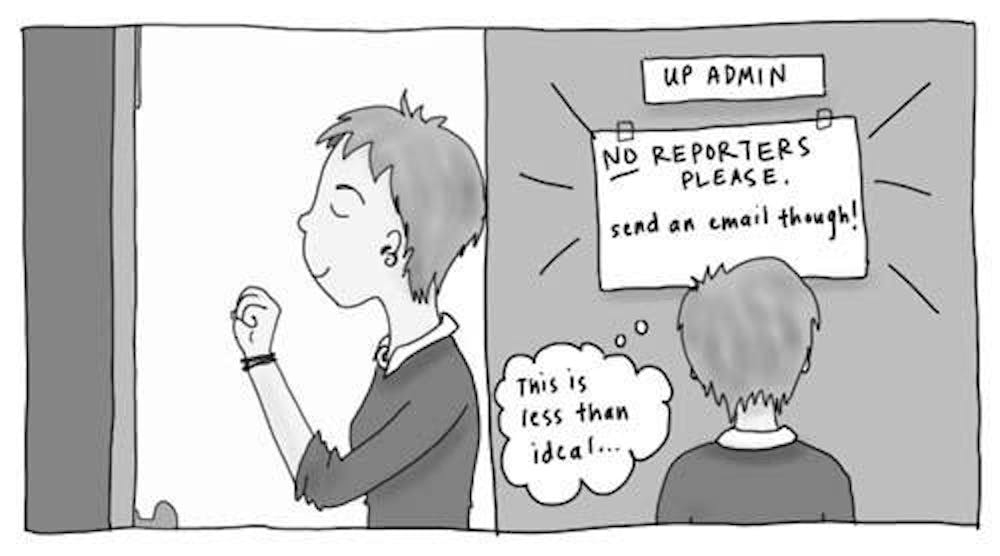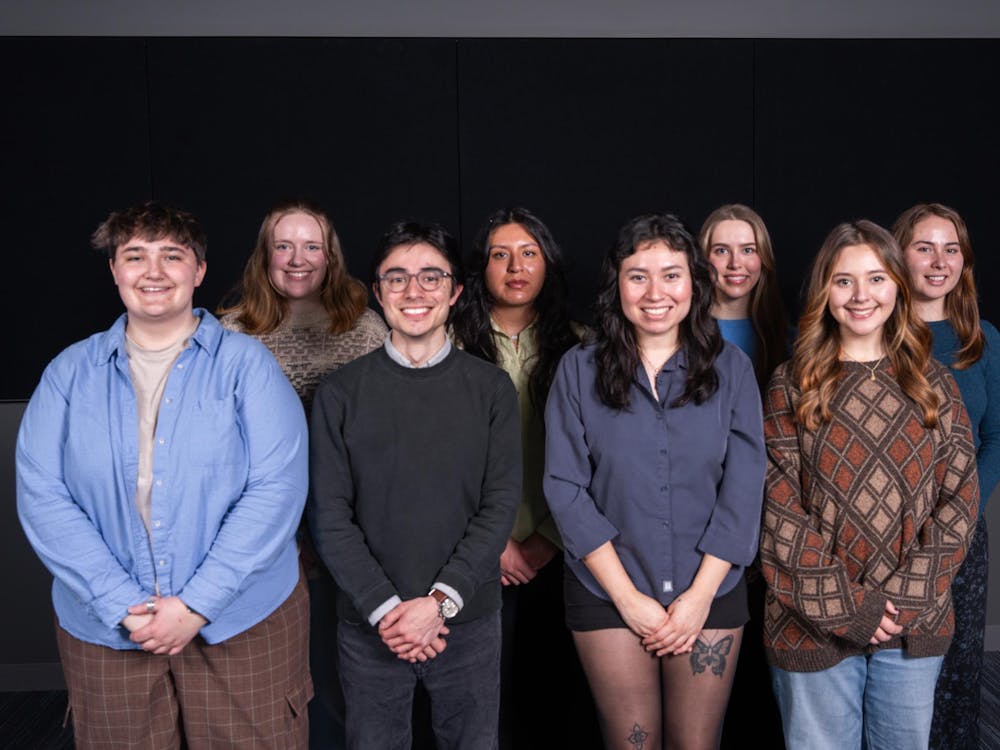(Ann Truong | The Beacon)
By by the Beacon Editorial Board
The Beacon, like every other student newspaper, exists as a voice for students and others on campus.
It exists so that its readers see all perspectives, not just that of the institution.
It also exists to teach its staff how to report stories that are fair and include all angles.
Some administrators and staff members are not allowing this to happen.
Beacon reporters call administrators to include their voices in stories that directly involve them. Yet some administrators and staff members consistently make it difficult for us to do our jobs.
Some say they are simply too busy to meet with a reporter for a 15-minute conversation.
The Beacon understands that University staff have busy schedules - because we have our own busy schedules to work around.
But leaders in the UP community, administrators and staff members have an obligation to the students, staff and faculty to be honest about issues going at the University that directly affect our lives. By refusing to speak about these issues with The Beacon, they are shirking this obligation.
Some refuse interviews because they are out of town on business.
While on business trips, administrators and staff members most likely take other business calls, and Beacon reporters are more than open to conducting interviews over the phone.
Some insist on email interviews only.
Conducting interviews via email prevents the reporter and interviewee from engaging in a genuine conversation and building a relationship. When reporters meet with interviewees face to face, they can ask follow-up questions, get to know them and come to better understand their perspective.
Although email interviews may be appropriate in certain situations, such as those involving complicated legal information or interviewees who are abroad, in most all circumstances they go against professional journalism standards. The Beacon strives to be like a professional publication and is teaching its staff to behave professionally. We ask only that the administrators and staff of UP do the same.
Some interviewees insist on having a list of the questions before the interview.
Although reporters will gladly share the topics they plan to cover in their story, all honest stories come from conversations - not scripts.
Some administrators are worried about being misquoted.
This is a legitimate concern, and Beacon reporters will gladly record the interview to guarantee this does not happen.
Some potential interviewees simply do not even respond to interview requests, or, even worse, do not show up to scheduled interviews.
Now, that's just rude.
These administrators and staffers are not a majority at UP.
Mike Walsh, Gerald Gregg, Jeromy Koffler, Fr. Gerry Olinger, Fr. John Donato, Paul Myers, Jim Ravelli and the entire marketing department, among many others, go out of their way to be available and accommodating to The Beacon.
However, the few key administrators and staff members who do not cooperate with The Beacon deprive the UP community from hearing their perspective.
When anyone agrees to speak with The Beacon, they are taking the opportunity to tell their side of the story. By refusing this opportunity, they only shine a bad light on themselves - the only mention of them in the paper that they "declined to comment."
The Beacon does not seek to blindside anyone. Rather, we want to hear every side of the story so that our readers have an honest, fair picture of what is happening at their school.
When key administrators and staff members refuse to engage with student media, what does that say about UP? Is UP truly a community, where all its members' concerns are valued and taken into account? Or is it a corporation - where those in power who would rather not address uncomfortable issues simply ignore them?
Editorial Policy The editorial reflects the majority view of The Beacon Editorial Board. The editorial does not necessarily reflect the opinions of the collective staff or the Administration of the University of Portland. Other submissions in this section are signed commentaries that reflect the opinion of the individual writer. The Student Media Committee, providing recommendation to the publisher, oversees the general operation of the newspaper. Policy set by the committee and publisher dictates that the responsibility for the newspaper's editorial and advertising content lies solely in the hands of its student employees.








